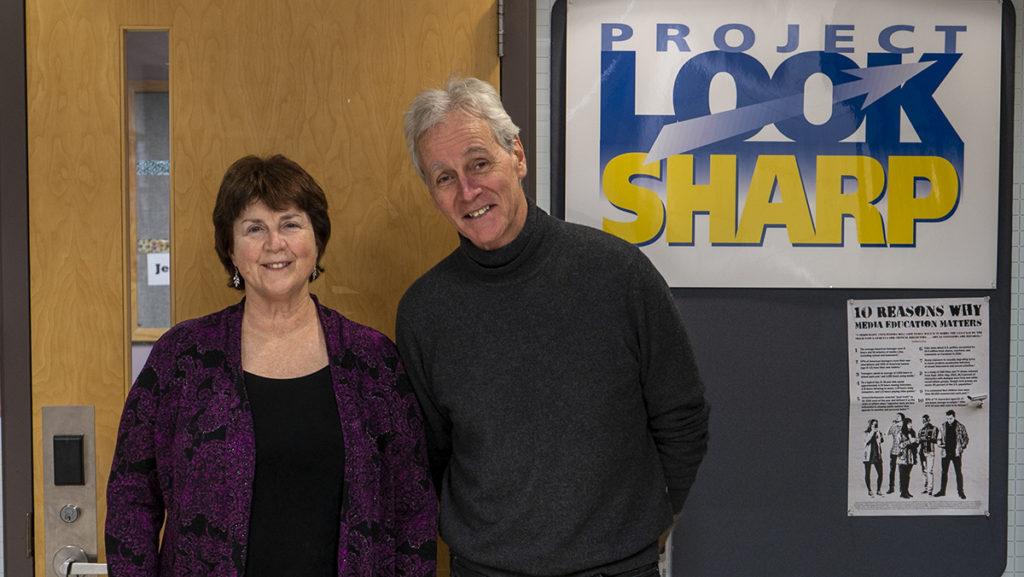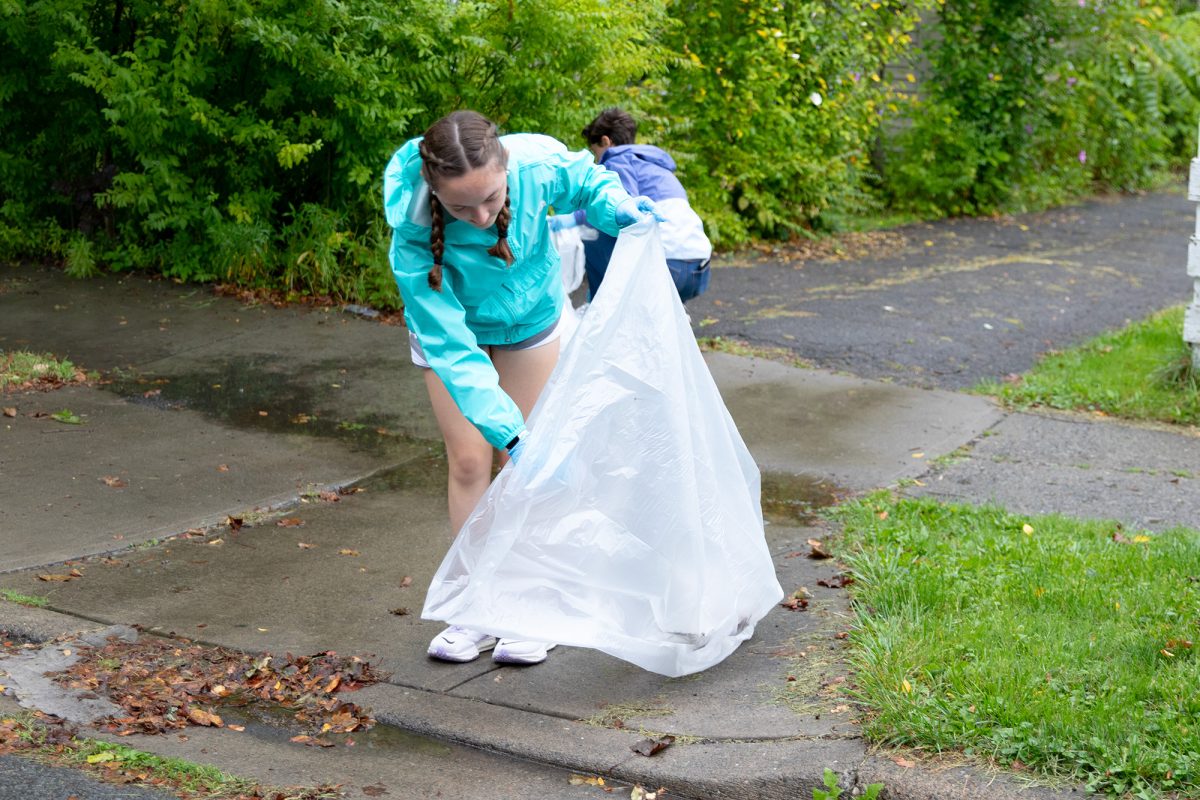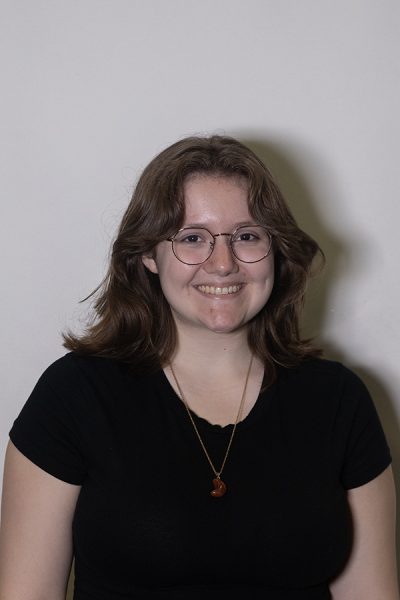In July 2023, Project Look Sharp, Ithaca College’s nonprofit media literacy program, received the two-year Laura Bush 21st Century Librarian Program grant for $150,000 from the Institute of Museum and Library Services. The grant will help expand the statewide Librarians as Leaders for Media Literacy (ML3) initiative to a nationwide level.
Project Look Sharp was founded in 1996 by Cyndy Scheibe, Dana professor in the Department of Psychology and executive director of Project Look Sharp, and Chris Sperry ’79, director of Curriculum and Staff Development at Project Look Sharp. The program’s mission is to provide kindergarten-through-college educators with the proper resources to teach students how to effectively engage with the media that surrounds them on a day-to-day basis. These resources include many of the lessons available for download that can be found on the project’s website.
Scheibe says the idea for Project Look Sharp came from her own research about the effects of television on young students.
“As a person who studied the effects of television, I would go out and talk with parents and teachers about media and media’s impact on kids, and everybody always wanted to know what we could do about it,” Scheibe said.
Although the program helps teachers develop plans to bring media literacy tactics into their classrooms, its main focus is on school librarians. In July 2021, Project Look Sharp received a two-year grant for $270,000 from the Booth-Ferris Foundation, which it used to create the ML3 initiative in partnership with the New York State School Library Systems Association.
The ML3 initiative involved choosing 19 New York educators from a pool of over 100 applicants, and teaching them how to integrate Constructivist Media Decoding into their schools. The participants had monthly individual coaching, attended monthly meetings on Zoom and met for a weekend retreat in Ithaca in July 2022.
With the new grant, Project Look Sharp, in partnership with the American Association for School Librarians (AASL), is looking to expand the progress made with the ML3 initiative to a nationwide level.
“An example of what that money will enable us to do, that we’re working on right now, is developing a survey that will go to all 50 AASL chapter leaders and then beyond that to many other organizations and groups to assess opportunities,” Sperry said.
Ari Kissiloff, Project Look Sharp’s technical consultant, is working with Sperry to create a database where information regarding library resources across the nation can be entered and properly assessed.
“At the moment this role includes creating a database of the 50 states which will include the various organizations and resources in each state that are dedicated to school librarians and their mission so that we can do better and more coordinated outreach to them,” Kissiloff said via email.
Once compiled, this information will be used to determine where Project Look Sharp can begin to pilot the ML3 initiative in different parts of the country, though Sperry expects there may be some resistance in certain areas, such as the south, where states like Florida and Georgia have been passing laws since the beginning of 2022 that restrict what teachers can say to students in regards to race, sexuality, inequality or American history.
“We expect that there will be particular challenges in certain states and regions that are now experiencing political pushback against critical thinking and the teaching of history,” Sperry said.
Despite this pushback, Scheibe said she believes that teaching media literacy to people of all ages across the nation is more important now than ever, especially as social media platforms make it easier than ever before to spread misinformation. However, Scheibe also believes that through programs like Project Look Sharp, people can learn to think critically about the media they consume and think twice before spreading information that may not be true.
“Media literacy is the end to that,” Scheibe said. “If you can get people to really care about this in today’s world, then I think we have a chance. You just need to have some humility, and to know you don’t know everything, and be willing to change your mind in light of new evidence.”
The program’s main approach to teaching media analysis, called Constructivist Media Decoding, was created by Sperry during the early stages of the program’s development. It aims to allow teachers to integrate media analysis practices into their everyday curriculum.
Bridget Crossman, librarian at Lake George Elementary School in Lake George, New York, was one of the participants selected in 2021. She said she decided to apply after seeing Project Look Sharp present at a state conference in 2019.
“I knew I had kind of stumbled on something that I needed,” Crossman said. “I needed it because one, media literacy is super important, and two, because I think this is the best way to teach it.”
Sperry believes librarians are the best people to become leaders for this initiative because they have access to a wide variety of both teachers and students.
“We see librarians as information literacy specialists with that background and that commitment to media and information literacy,” Sperry said. “They are experts in collaboration and inquiry, and they are in a position to be able to provide professional development as well as work directly with students.”
Crossman said the ML3 initiative was successful in not only teaching the participants how to become leaders in media analysis, but also in allowing them to bring these ideas to other educators in their schools.
“To me, it was like, I’m going to come back to my teachers and give them great resources and great practices to use in their classrooms,” Crossman said. “The teachers I’ve talked to really appreciate it, and they love that Project Look Sharp has given them materials and questions.”
Sharon Fox, a librarian at Temple Hill Academy who was also selected for the initiative in 2021, said she believes that Project Look Sharp has not only improved the way she approaches teaching, but has improved students’ approach to learning as well.
“I’ve been a librarian for 13 years, and this is the one thing that has changed everything about my career,” Fox said. “It really does so much for kids and so much for their self esteem because they’re realizing that what they have to say is so valuable.”
Even though Project Look Sharp focuses mainly on K-16 students and educators, Sperry agrees that media literacy is fundamentally important to teach to people of all ages.
“Literacy is about power,” Sperry said. “This work is about personal empowerment for students, but it’s also about the fundamentals of humanity, and what it means to be an active, engaged human being.”









